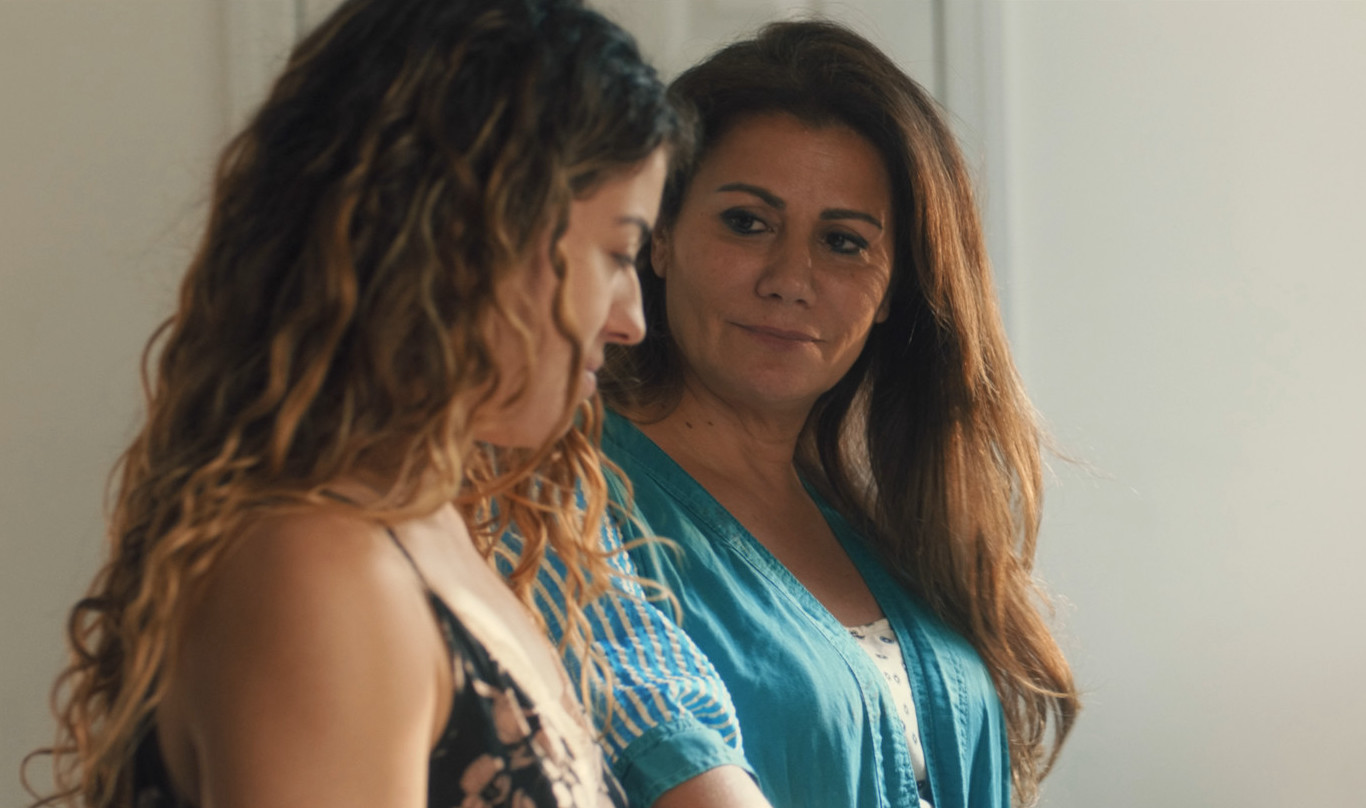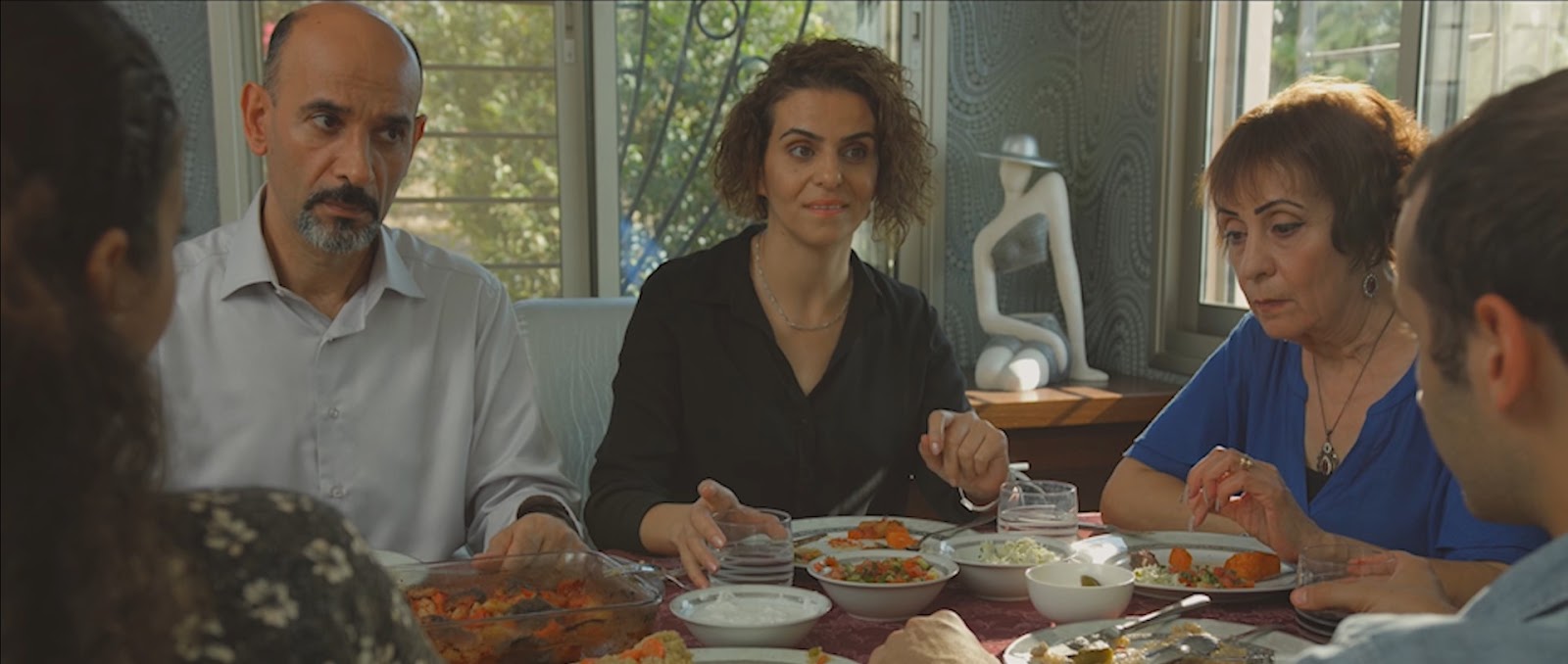October 14–23, 2022
For the festival’s complete program of documentaries, shorts, and feature films visit https://bostonpalestinefilmfest.org.
Palestinian family traditions, particularly as they affect women, feature strongly in this year’s festival shorts. Young women, and in one case a young man, face the dilemma of needing to pursue their own life choices versus those involving the traditions of their elders, which the younger generation also respect.
Short films have the power to convey deeply felt personal stories in just a few minutes. The facial expressions of each character, the tension in silences, and the snippets of conversation not only capture an entire story, but also an emotional situation rife with inner unease—something audiences identify with at once and that words can rarely express.
This year’s shorts bravely connect us to our inner, hidden selves of fear, pain, love, anger, and self-doubt. Talented directors of both sexes have created these difficult family and cultural situations with such truth that our audience response is one of understanding and empathy—responses so often missing in our busy, me-first lives.
Me and You, dir. Alexandra Muhawi-Ho, 2020, 17 min., USA
In Me and You, Amira, an Arab school teacher raised in the United States, juggles two lives—the one at home with her traditional mother who needs medical and emotional care, and the one in the outer world with an American culture that includes far more freedom for a woman, especially romantically. Love and duty keep Amira faithful to her mother, but also hiding her dating life with a colleague and her own discontent with Islamic traditions. Her home life looks and feels dark and curtained, while her outer life in the open and in school has freedom, choices. The stress of living two lives creates tension in all Amira’s relationships. Can she resolve her dilemma? Can she ever have a separate life from her mother’s? Her problem is driven home when her mother flings impassioned words at her: “May God keep you with me!”
Hush, dir. Samar Qupty, 2021, 20 min., Palestine, Israel
World premiere
Two friends, Nadine and Nour, band together to find out if Nour is pregnant—a problem that would be of severe consequence to her life. The film follows the young women on their quest to obtain a pregnancy test, which leads to a life-changing visit to a gynecologist Nadine’s dad knows, one who can supposedly be trusted to keep a secret. The young women’s journey for help within a society of prohibitive rules for women—despite the protagonists’ educated, bourgeois background—leads to Nadine’s awakening and resistance to such patriarchy. A low, ominous tone of warning sounds whenever one of the “helpful” male characters offers assistance to the women—a marvelous touch!
The Woman from Bar Blue, dir. Jalal Masarwa, 2021, 14 min., Palestine, Israel, Boston premiere
Familial conflict strikes and hurts at every turn in this relationship-packed short film. From the unhappy mother’s frost and spite meeting her son’s fiancée, to the son’s grandmother taking absurd revenge on the young woman for wrongs done to her by her deceased husband, to the father and son behaving passively, we witness one family living the extremes of ancestral wounds that cause dysfunction in next-generation relationships. The predicament that unleashes havoc at this family’s gathering springs from social class divisions, rules for sexual activity, and personal vendettas. Private griping soon leads to overt insults and on to destructive behavior. Like all wars on earth, only after irrevocable damage has been done, is a truce the only solution.
Borekas, dir. Saleh Saadi, 2020, 15 min., Palestine
Borekas is a quintessential father and son film, every second pulsing with the tension of opposites and the suspense of how the problem will be resolved. The son has to make his plane back to Germany, and his father has insisted on driving him to the distant airport. Unfortunately, the car breaks down in the middle of nowhere. The father takes an easy-going attitude toward the problem, while the son’s anger mounts as the minutes tick away. The past relationship between father and son slowly comes out— how they both feel hurt by the other and for the distance between them. Then, the father brings up his son’s secret, and in so doing opens a bridge to their reconnection and healing.
Be Good, dir. Jessica Damouni, 2021, 13 min., USA
Boston premiere
What a brave, powerful, and wholly educational film by Jessica Damouni. Be Good takes viewers into the deep mental hell of bulimia. We witness Lelia’s psychic pain about her body image that causes her to live as two personalities: the friendly, “everything is fine” person with her friends who phone about a birthday party that day, and the one who hangs up only to reenter the dark, terrifying world of her mind’s disorder. The latter state dominates her life, and Leila’s portrayal in a small bedroom attached to a bathroom becomes a perfect visual metaphor for the hidden, locked-in state that has taken possession of her mind.
Contributed to the Boston City Paper by G.D. Spilsbury
www.bergamotbooks.com






No comments:
Post a Comment